For 33 Years This Forest Guard Has Faced Bullets & Floods For Kaziranga’s Animals
"I started working in Kaziranga in 1987 when I was just 21. This is isn't an easy job but I have loved every bit of it," smiles the 54-year-old grandfather. #EarthHero #Respect
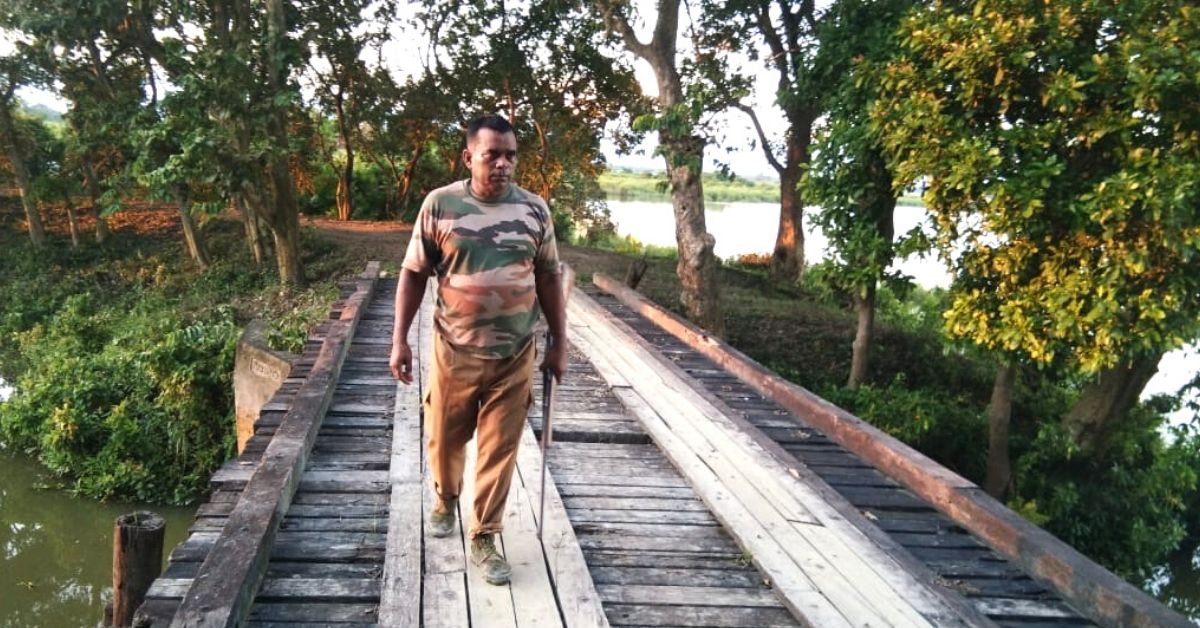
Having grown up in Assam, a mandatory annual trip to the Kaziranga National Wildlife Park is a shared experience of most Assamese families. I still remember my first trip. I was excited and in awe to see the beautiful deers, the majestic elephants hiding behind the tall grasses and the iconic one-horned rhino.
What I did not realise at the time is how precious and endangered these species are. Kaziranga contains about 71 per cent of the world’s wild population of the one-horned rhino which is also the most commonly poached animal in the state.
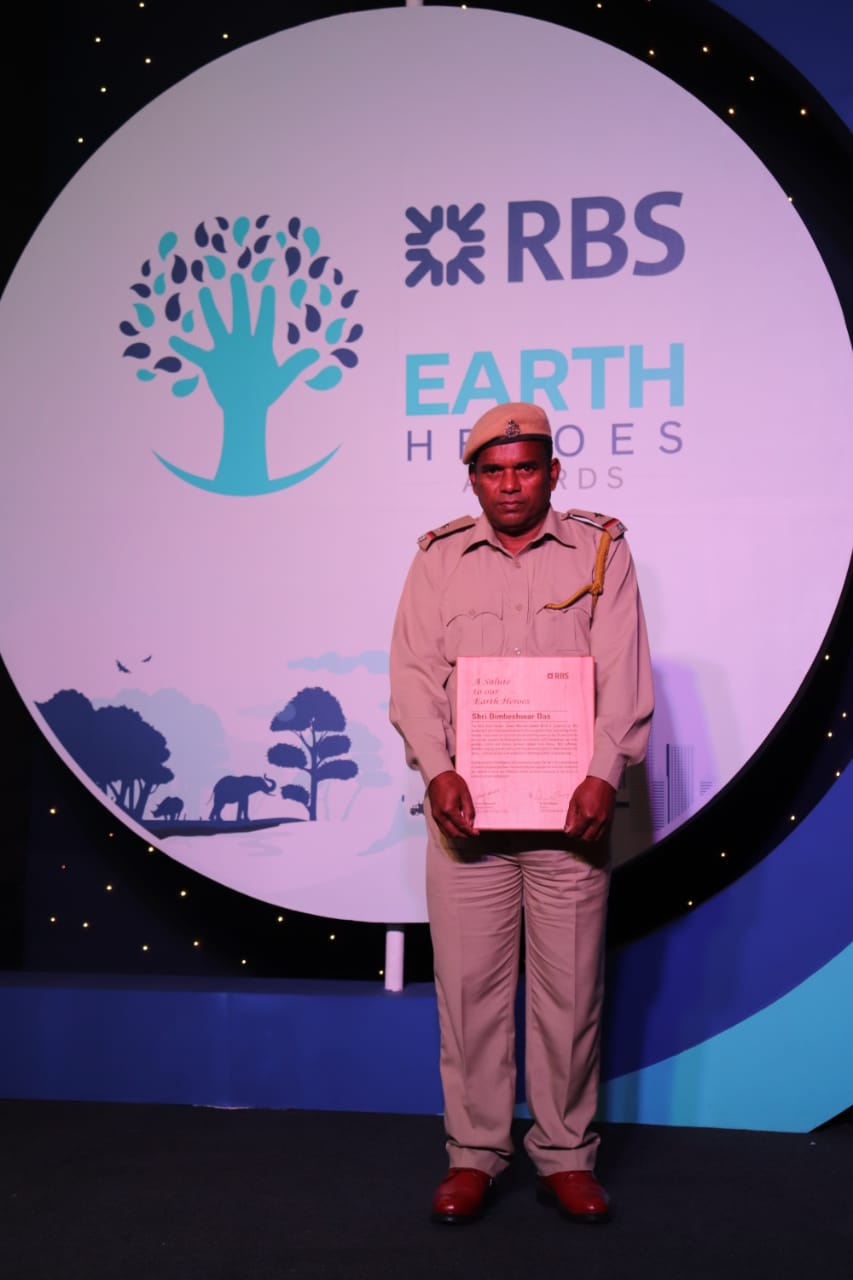
At the helm of the conservation activities is the Frontline Forest Staff in Kaziranga. And you would be surprised to know that a 54-year-old man has dedicated 33 years of his life in ensuring these animal’s safety.
Meet Dimbeswar Das who has put himself in danger, fought poachers, bullets for years and continues to work tirelessly even now.
“I started working in the forest in 1987 when I was only 21-years-old. I don’t know where all the time has passed,” smiles Dimbeswar who was only promoted to the rank of a forest guard last year after serving the animals and the forest for over 30 years!
The Forest guard was given the Earth Heroes Award in November last year by The Royal Bank of Scotland. The award recognises individuals and institutions who put in tremendous efforts in preserving and protecting our ecosystems. His nomination was sent by senior forest officials who deemed him the perfect candidate for this award.
“I cannot believe I got this award and I am very grateful to my superiors for selecting me. The thing about this job is, I love every aspect of it. So, whatever work is given to me, I happily do it,” says Dimbeswar humbly.
Farmer to a Protector of Kaziranga
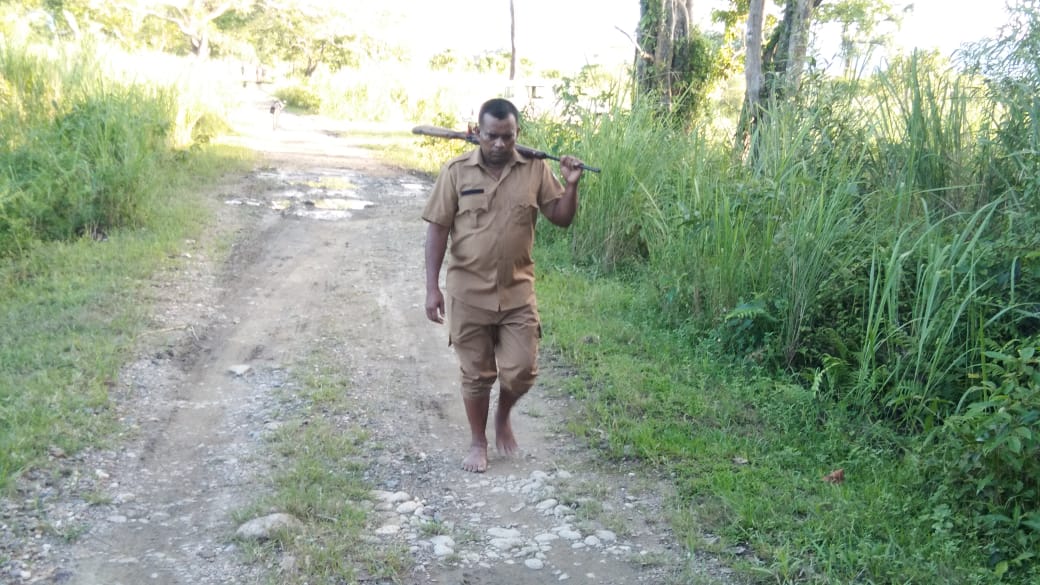
Dimbeswar grew up in a family of six siblings, with him being the oldest in a village called the Japori Pathar, adjacent to Kaziranga. His father was a farmer and cultivated rice, mustard, and vegetables on a 4-acre land while his mother was a homemaker.
Dimbeswar only studied until the age of 13 after which he started lending a hand in his father’s farm. “We weren’t financially doing too well at the time and being the oldest of six siblings, I had to take up the responsibility,” he recalls.
Dimbeswar’s willingness to take responsibility and responsiveness to the call of duty is something that has helped him throughout his career.
“In 1987, poaching in Kaziranga had become a huge menace and the Forest department needed more people on the ground to protect the animals,” says Dimbeswar.
This was the time when The Assam Forest Protection Force Act, 1986 also came into existence for better protection and security of the forests, the wildlife and the forest produce in Assam’s jungles.
Dimbeswar was soon recruited after a physical test. Another motivation for him to take up the job was because his father had just passed away and he took up the job to support his family. He joined as a ‘casual worker’, which wasn’t a permanent position at the time, along with over 80 other people.
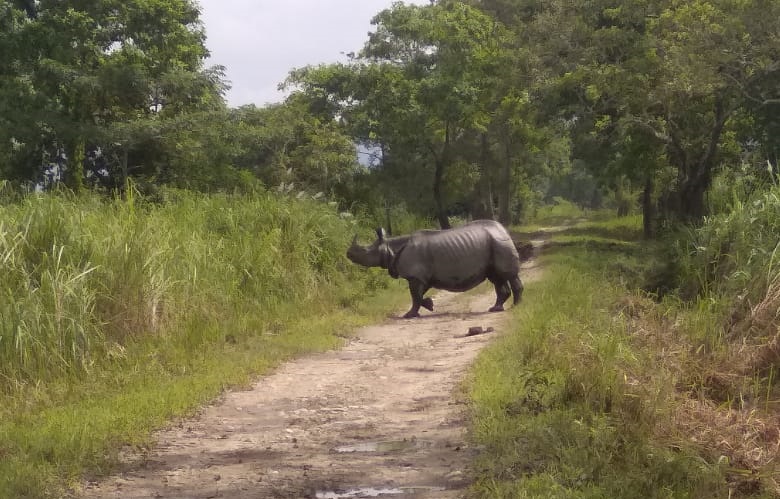
During the training, Dimbeswar learnt how to utilise all his senses and remain vigilant, how to quietly walk around the forest and how to operate a rifle in case of danger. “I learnt how to clean the guns and rifles, how to keep it well oiled and how to load it,” he says.
Once he started his job, his day would begin at 4 am and he would push off for his patrolling duties by 7 am and in intervals would venture out for patrolling at least four times a day.
Dangers Inside the Dense Forests
After working as a casual worker for two years, Dimbeswar officially joined the ranks two years later as a ‘boatman’. The duties of the boatman are the same as that of a casual worker but the dangers in the forest were immense.
Kaziranga is home to the great Indian rhinoceros, a native species found only in India. Being the only spot for these species, The Kaziranga National Park became a hot spot for poachers.
“A lot of these poachers would be local while some of them belonged to the neighbouring states. There have been so many encounters that I have even lost count of them,” he says.
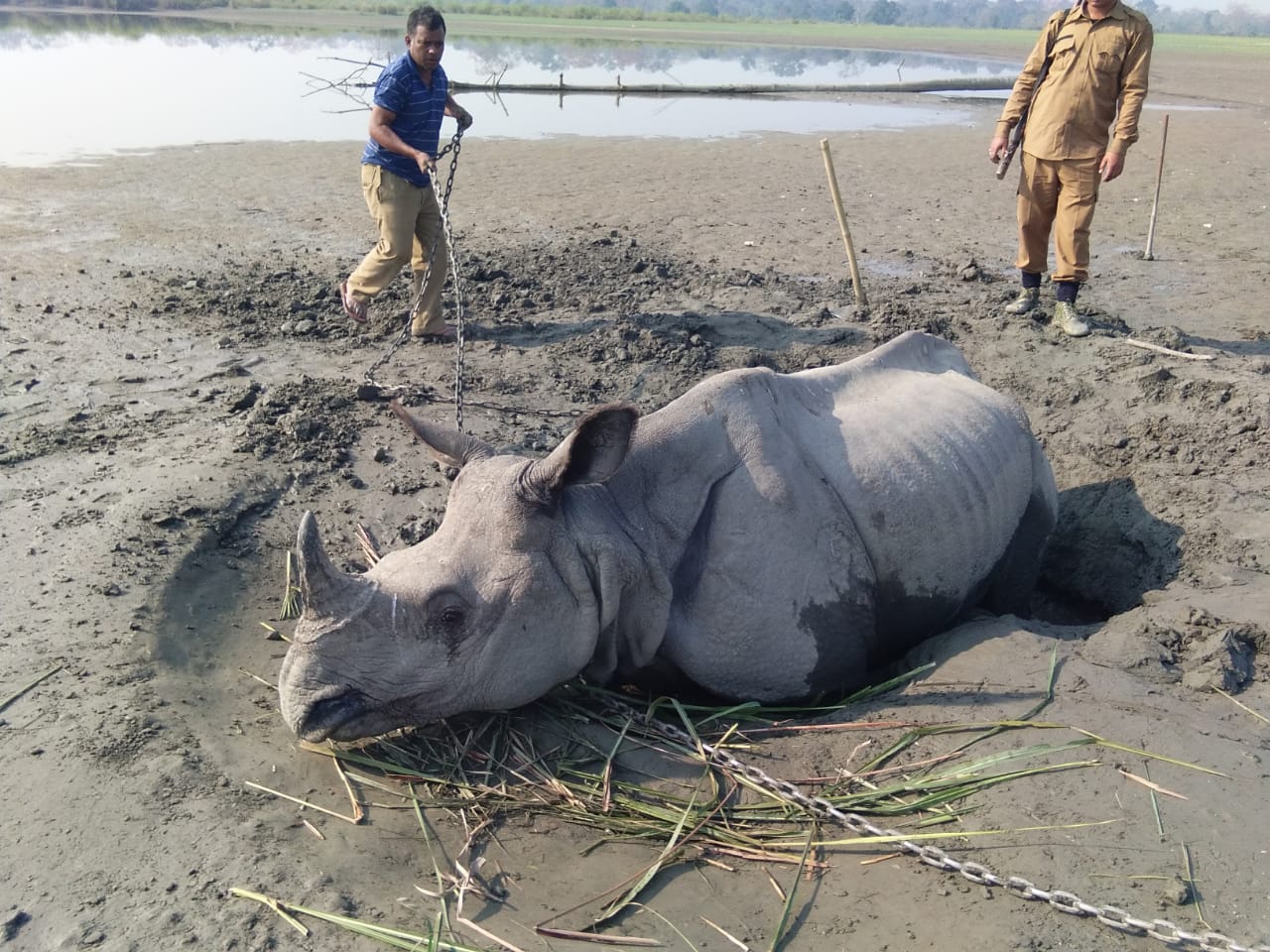
Upon catching them, these poachers are questioned about their activities. “There is a very high demand for the rhino’s horn. We found out that these would be illegally smuggled through Myanmar and sold in the international black market for its medicinal properties,” informs Dimbeswar.
What Dimbeswar is saying is true. Rhinoceros horn is sought after in the Chinese and the Vietnamese black markets for medicinal properties, as jewelry, as gifts and for something as petty as display figures to convey one’s wealth.
Between 2008 to 2013, Dimbeswar informs that poaching in Kaziranga had reached an all-time high. Dimbeswar also adds that during the monsoons when the forest is prone to flooding, it serves an opportunity for poachers because the area is difficult to patrol at that time.
“To deal with that, I along with other officials in the forest started to recruit young boys as informants to keep their ear to the ground. They have been very helpful in managing the poaching problems as they would tell us if any new person has entered Kaziranga’s premises, where they’re from and what they do. That helped us catch a lot of poachers,” he says.
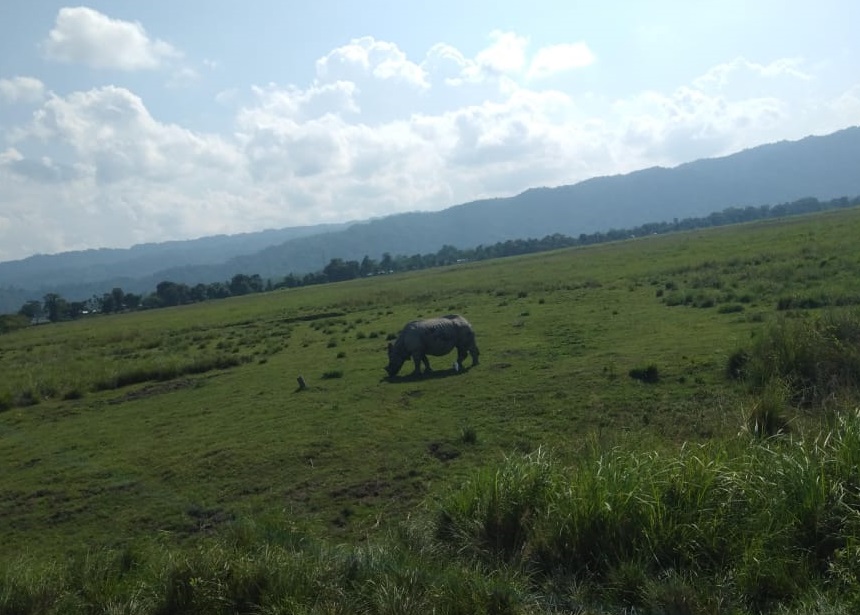
Dimbeswar’s strong resistance against poachers, however, put him and his family in a lot of danger.
“There was one time we had caught a rhino poacher a few years back and had detained him for questioning. Somehow, he managed to escape. Because he recognised my name and my face, not only was I threatened but even my family was subjected to this. To ensure their safety, I had to live away from them for long periods but I utilised that time in my service,” he says.
Over the years, settlements around the forests have increased. This immediately gave rise to instances of man-animal conflict and the frontline staff to manage these situations. Dimbeswar recalls an incident that took place in 2004.
“A mother tiger ventured into the fields of one of the neighbouring villages in search of her cubs. She attacked an elephant and the mahout. We had to manage the situation by ensuring that we don’t hurt the animal while also keeping in mind the safety of the villagers,” he recalls.
Finally, they were able to tranquilize the tiger and after being checked by the vets, she was released into the jungle again.
A Man You Can Count On
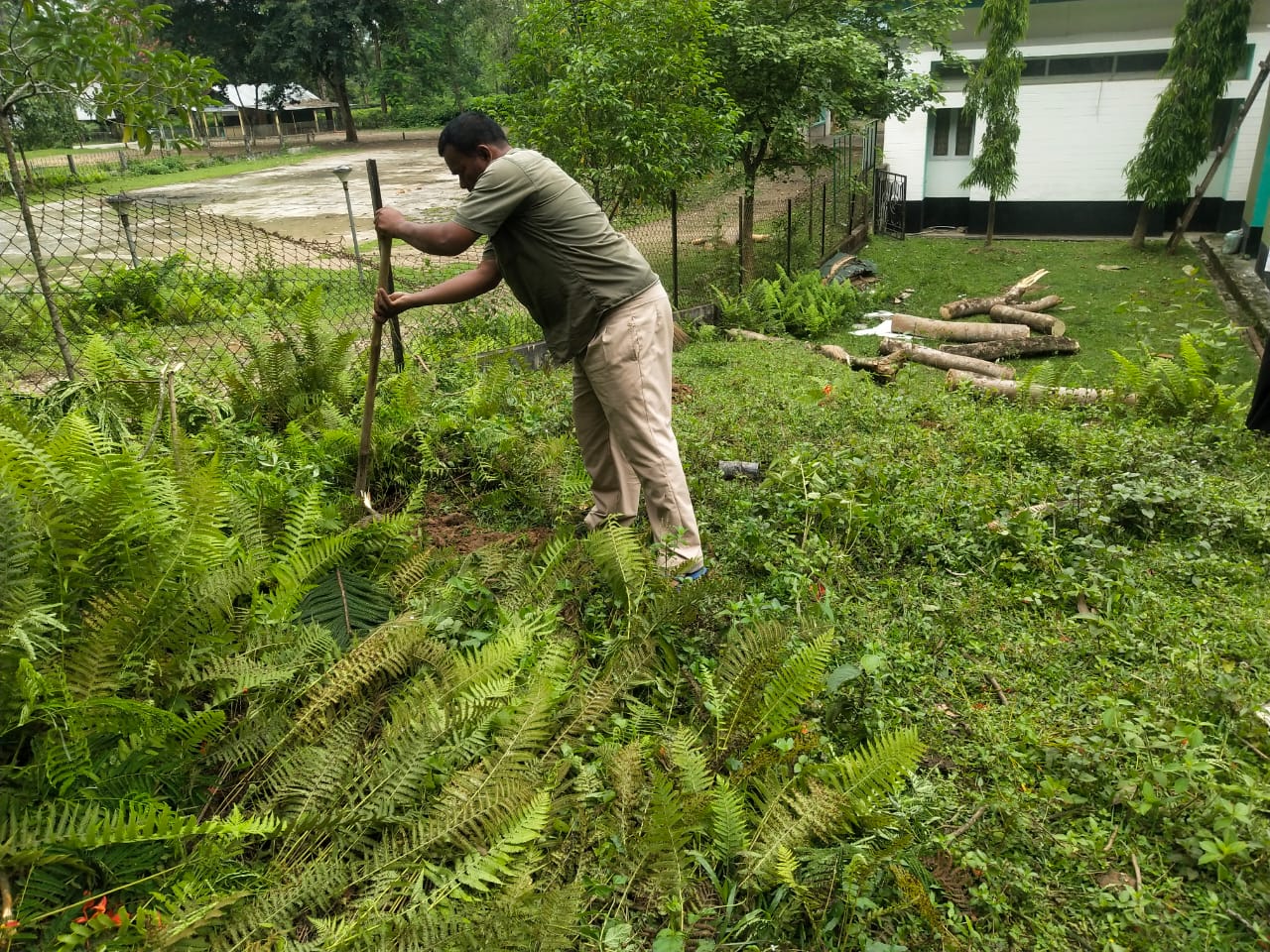
Last year, when the forest officials had to send one name from Kaziranga as an entry for the Earth Heroes Award, only one name came to their minds. It was none other than Dimbeswar Das for his contribution to preserving wildlife in the national park for over 30 years of dedicated service.
Bastav Borkotoky, a Forester in the Frontline services, has been working closely with Dimbeswar since 2016 when he joined the ranks. He was also one of the people who deliberated and nominated Dimbeswar for the Award. In fact, the 31-year-old accompanied Dimbeswar all the way to Delhi for the Award ceremony.
“Kaziranga was my first posting and when I first joined, everyone knew who Dimbeswar Das was. He knows the forest roads well as if he’s mapped it all in his mind. He has served the forests staying away from his family and has even received threats to his life from poachers,” he informs.
Despite all this, Bastav adds that Dimbeswar Das is one person everyone in the frontline services can count upon. “Be it arriving on a speedboat with a vet for the animals, to distributing food among the staff, to even showing up immediately if someone’s been injured, he is there,” he says.
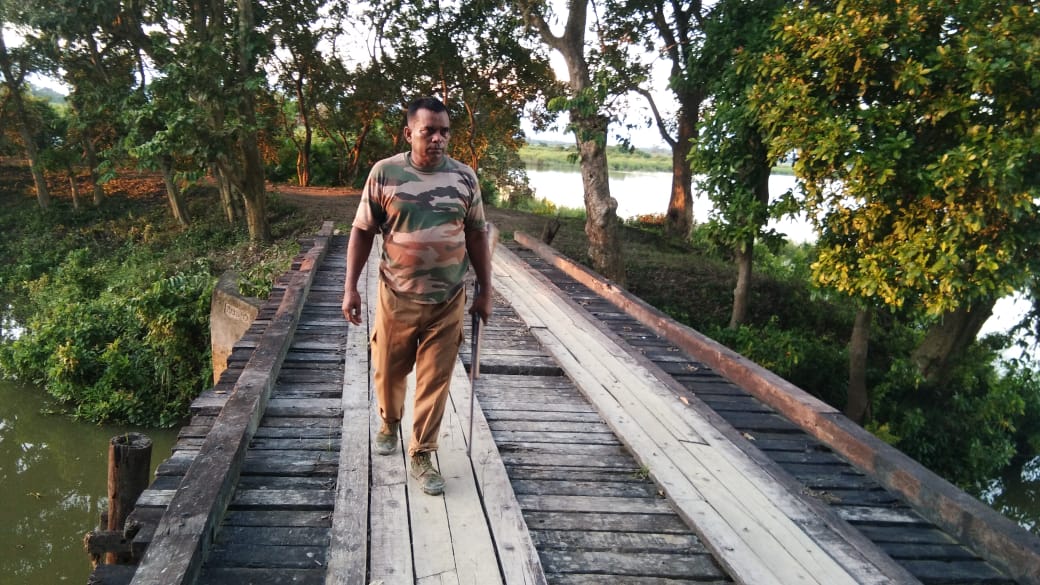
After working in the forest for 33 years, Dimbeswar really feels like he has forged a bond with the animals there.
“One thing I have learnt after so many years is that animals know your intent. One must just let them be and they won’t harm you unless they themselves feel threatened,” he says.
Always watching animals from a distance, Dimbeswar would always turn up for them when they are in need. “During the floods, a lot of animals need to be rescued. Since I served as a boatman for so many years, I turn up with a vet on the speedboat as soon as possible,” says Dimbeswar.
But, Dimeswar says that had it not been for his family, he wouldn’t have been able to achieve what he has.
“My wife has been a source of support for me since we got married in 1992. I am not someone who takes a lot of vacations or even goes back home frequently, but through it all, she has stood by me,” he says.
Dimbeswar has three children and all of them are married. In fact, he is even a grandfather with four grandchildren. So, in the six years of his service that remains, what is it that he wants to achieve?
“This isn’t an easy job but I have loved every bit of it. I want to plant more trees in and around the forest area so as to prevent it from diminishing so that the animals who live here never lose their home,” he says signing off.
Also Read: In 5 Years, Fisherman Plants 75000+ Mangrove Trees Along Kerala’s Coast!
(Edited by Saiqua Sultan)
Like this story? Or have something to share?
Write to us: [email protected]
Connect with us on Facebook and Twitter.
If you found our stories insightful, informative, or even just enjoyable, we invite you to consider making a voluntary payment to support the work we do at The Better India. Your contribution helps us continue producing quality content that educates, inspires, and drives positive change.
Choose one of the payment options below for your contribution-
By paying for the stories you value, you directly contribute to sustaining our efforts focused on making a difference in the world. Together, let's ensure that impactful stories continue to be told and shared, enriching lives and communities alike.
Thank you for your support. Here are some frequently asked questions you might find helpful to know why you are contributing?


This story made me
-
97
-
121
-
89
-
167














